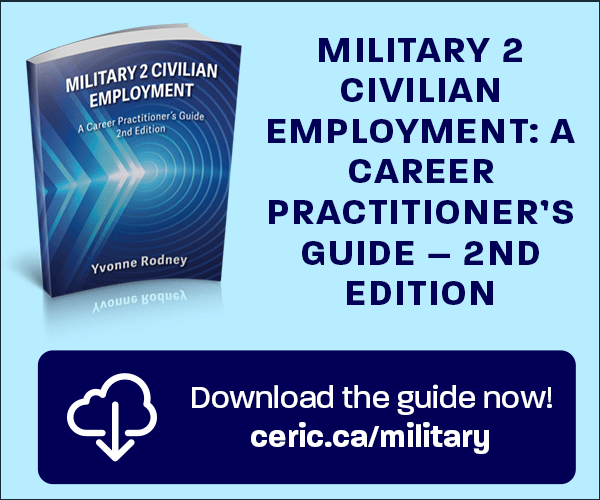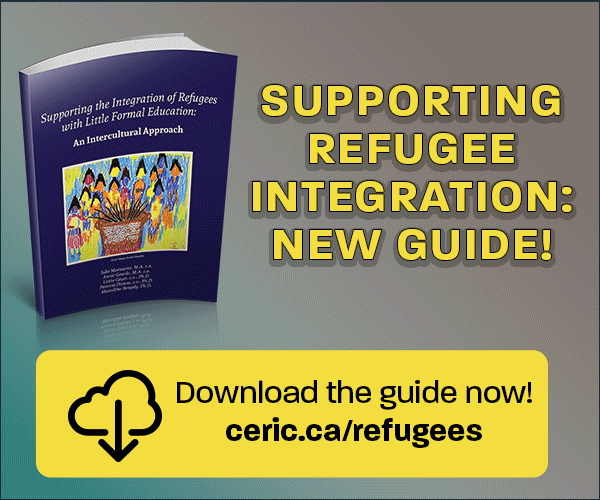The Role of Career Development in the Process of Psychological Adaptation to Cancer: Re-Visiting the Task Model Approach
Keywords:
career development, psychological, cancerAbstract
In recent years, advances in medi cine and improved treatments have extended the length of survival of can cer patients. Given such developments, cancer is increasingly perceived as a chronic illness. Therefore, it is impor tant to study how cancer survivors adapt over the course of their lives to this transition. This article proposes a theoretical model of adaptation to chronic illness referred to as the “task model.” This model embodies a phe nomenological perspective that focuses on a person’s subjective perceptions. Additionally, the task model provides us with a perspective from which we can gain a better understanding of how individuals who arc diagnosed with life threatening illnesses like cancer recon struct their existence by completing tasks such as physical, psychological, social, and spiritual. However, given that cancer patients are living longer and leading relatively normal lives, this article not only underlines the impor tance of work and career development in this particular process, but also rec ommends the addition of the aforemen tioned to the current task model.
References
Brown, H.G., & Tai-Scale, M. (1992). Vocational rehabilitation of cancer patients. Seminars in Oncology' Nursing, 8(3), 202-211.
Canadian Cancer Society. (2002-2003). Statistics. Retrieved February 9, 2004 from http://cancer.ca/ccs/ intemct/canccr/0,,3172,00.html
Carter, B.J. (1994). Surviving breast cancer. Cancer Practice, 2(2), 135- 140.
Cherny, N.L, Coyle, N., & Foley, K.M. (1994). Suffering in the advanced cancer patient: A definition and taxonomy. Journal of Palliative Care. 10(2), 57-70.
Celia, D.F., Mahon, S.M., & Donovan, M.l. (1990). Cancer recurrence as a traumatic event. Behavioral Medicine, 16, 15-22.
Cohen, F., & Lazarus, R.S. (1979). Coping with the stress of illness. In G.C. Stone, F. Cohen & N.E. Adler (Eds). Health Psychology : A Handbook, (p. 217-254). San Francisco, CA: Josscy-Bass.
Corr, C.A. (1991-92). A task-based approach to coping with dying. Omega, 24(2), 81-94.
Cunningham, A.J. (2002). Bringing spirituality into your healing journey. Toronto, ON: key Porter Books Limited.
Doka, K.J. (1995-96). Coping with life- threatening illness: A task model. Omega, 32(2), 111-122.
Georgescn, J., & Duncan, J.M. (1996). Managing spiritual distress in patients with advanced cancer pain. Cancer Nursing, 19(5), 376-383.Hoffman, M.A. (1997). HIV disese and work : Effect on the individual, workplace, and interpersonal con texts, Journal of Vocational Behavior, 51, 163-201.
Hounshell, J., Tomori, C., Newlin, R., Knox, K., Rundhaugcn, L., Tallman, M., ct al.(2001). Changes in finances, insurance, employment, and lifestyle among persons diagnosed with hairy cell Leukemia. The Oncologist, 6, 435- 440.
Ingersoll, R.E. (1994). Spirituality, religion, and counseling: Dimensions and relationships. Counseling and Values, 35(1), 98-111.
Jenkins, R.A., & Pargament, K.I. (1995). Religion and spirituality as sources for coping with cancer. Journal of Psychological Oncology, /3( 1/2), 51-74.
Kangas, M., Henry, J.L., & Bryant, R.A. (2002). Posttraumatic stress disorder following cancer: A conceptual and empirical review. Clinical Psychology9 Review, 22, 499-524.
Kastenbaum, R. (1991). Death, society and human experience (4^ cd.). Columbus, OH: Merrill.
Komblith, A.B. (1998). Psychological adaptation of cancer survivors. In J.C. Holland, Psycho-oncology (pp. 223-241). Oxford, England: Oxford University Press.
Kunkel, E.J.S., Bakker, J.R., Myers, R.E., Oyesanmi, 0., & Gomclla, L.G. (2000). Biopsychosocial aspects of prostate cancer. Psychosomatics, 4/(2), 85-94
Kurtz, M.E., Wyatt, G., & Kurtz, J.C. (1995). Psychological and sexual well-being, philosophical/spiritual views, and health habits of long term cancer survivors. Health Care for Women International, 16, 253-262
Lazarus, R., & Folkman, S. (1984). Stress, appraisal, and coping. New York, NY: Springer.
Moos, R.H., & Tsu, D.V. (1977). Coping with physical illness. New York, NY: Plenum Medical Book Company.
Muzzin, L.J., Anderson, N.J., Figuercdo, A.T., & Gudelis, S.O. (1994). The experience of cancer. Soc. Sci. Med, 35(9), 1201-1208.
Pargamcnt, K.I. (1997). The psychology’ of religion and coping. New York, NY: The Guilford Press.
Riverin-Simard, D. (2002). Le sens du travail et la carriclogie. Carrielogie, 8(3)
Roessler, R.T., & Rumrill P.D., Jr. (1998). Reducing workplace barriers to enhance job satisfaction : An important post employment service for employees with chronic illnesses. Journal of Vocational Rehabilitation, 10,219- 229.
Rohr, R. (2001). Hope against dark ness: The transforming vision of Saint Francis in an age of anxiety. Cincinnati, OH: St. Anthony Messenger Press.
Samson, A., & Zertcr, B. (2003). The experience of spirituality in the psycho-social adaptation of cancer survivors. The Journal of Pastoral Care & Counseling, 57(3), 329-343
Schlossberg, N.K., Waters, E.B., & Goodman, J. (1995). Counseling adults in transition. New York, NY: Springer Publishing Company.
Shaw, L., Segal, R., Polatajko, H,, & Harbum, K. (2002). Understanding return to work behaviours: Promoting the importance of individual perceptions in the study of return to work. Disability and Rehabilitation, 24(4), 185-195.
Taylor, S.E. (1983). Adjustment to threatening events: A theory of cognitive adaptation. American Psychologist, 35, 1161-1173.
Thomas, J.J. (1995). Reducing anxiety during phase I cardiac rehabilitation. Journal of Psychosomatic Research, 39(3), 295-304.
Van dcr Wouden, J.C., Greaves-Otte,J.G.W., Greaves, J., Kruyt, Ph.M.,van Leeuwen, O., & van dcr Does, E. (2001). Occupational reintegration of long-term cancer survivors. Journal of Occupational Medicine, 34,(11), 1084-1089.
Ya lorn, I.D. (1980). Existential psychotherapy. New York, NY: Basic Books Publishers.
Yalom, I.D. (2003). The gift of therapy: An open letter to a new generation of therapists and their patients. New York, NY: Harper Collins Publishers Inc.

Downloads
Published
How to Cite
Issue
Section
License

This work is licensed under a Creative Commons Attribution-NonCommercial-NoDerivatives 4.0 International License.
















